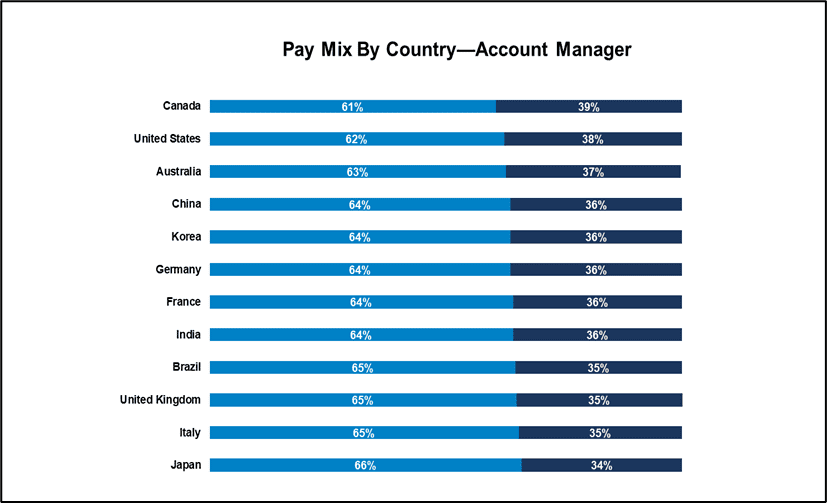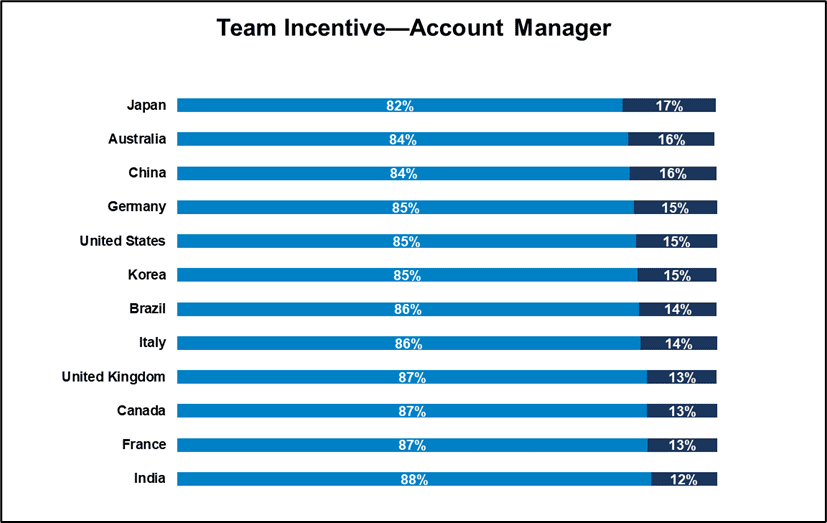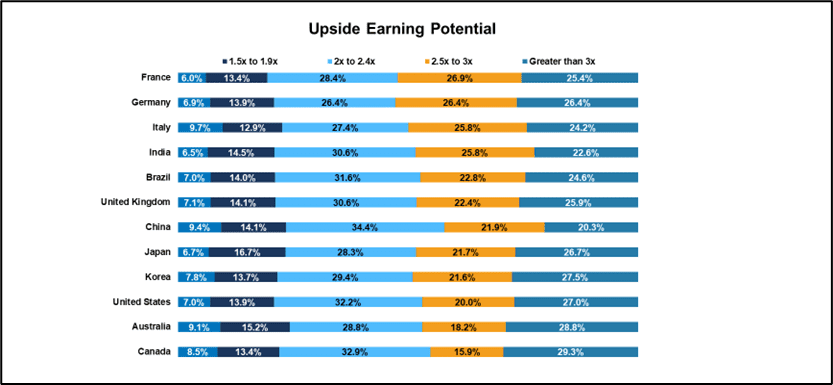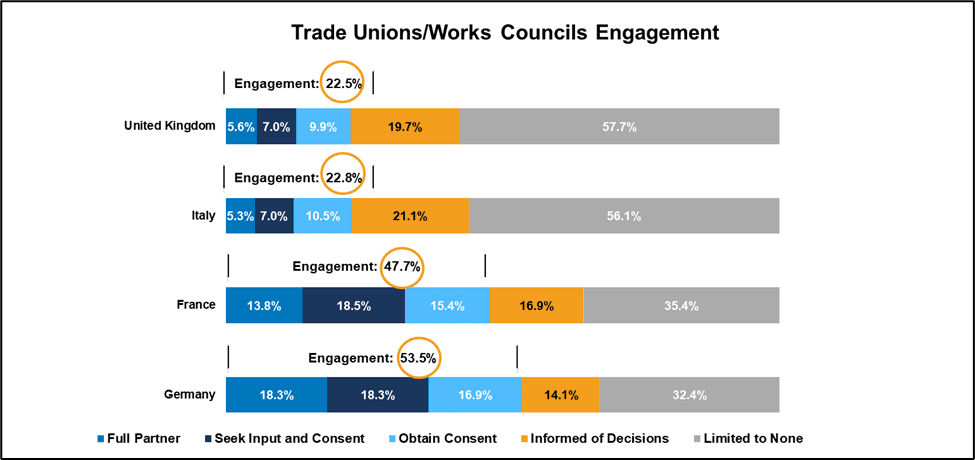Global Sales Compensation Practices: Four Myths and One Truth
Alexander Group’s 2022 Global/Multi-Country Sales Compensation Practices Survey Findings
Multinational companies have local sales personnel serving local customers. Most companies use sales compensation to reward sellers for sales success. Should sales compensation plans be uniform around the world or tailored to local market conditions?
According to Alexander Group’s 2022 Global/Multi-Country Sales Compensation Practices Survey, the default answer is to have uniform practices throughout the world unless compelling conditions, such as unique go-to-market strategies or local sales job configurations, warrant custom, local pay practices.
Four Myths and One Truth
Other interesting survey findings revealed commonly held global sales compensation beliefs about culture, pay mix, teaming, upside potential and EU works councils. More than 120 companies, representing over 145,000 sellers, participated in the survey providing compelling insights into global sales compensation practices.
Myth #1: Local Culture Plays a Major Role in Sales Compensation Design
Not really. When asked what factors favor local design considerations, responses at the top of the list include go-to-market realities (57.7%), company organization structure (50.4%) and sales job design (41.5%). Near the bottom of the list is local culture (only 17.9%).
Myth #2: Pay Mix Varies by Country
Not true. Pay mix is the split of on-target earnings between base pay and target incentive. As reported for the account manager job in 12 large, country economies, the pay mix varies by 5% or less.

Myth # 3: Team Incentive Use Varies by Country
Not true, either. Team incentives tie sellers’ pay to a shared goal. When employed, the team component is often a minor component of the pay plan. 44% of the companies report using teaming in their incentive plan. The highest portion of target incentive linked to team performance is 17% in Japan. The team portion among countries varies by 5% or less.

Myth #4: Upside Earning Potential Varies by Country
Not really. Not much variance in upside potential among countries. However, a more revealing truth emerges as upside opportunity varies widely within countries. Expressed as a multiple of the target incentive, the upside need not be capped, but does reflect the expected earnings of outstanding sellers. A 1x leverage plan has no upside potential beyond the target incentive. 2x leverage means the total upside incentive amount is twice the target incentive. 3x leverage means the total upside incentive amount is 3x the target incentive. Scanning the upside opportunity by country does not reveal a discernable pattern by country. However, the practices within each country range from less than 1.5x to over 3x target incentive.

Truth #1: Trade Unions/Works Councils in France and Germany Play a Role in Sales Compensation Design
Yes, mostly true. Employee representative practices are common in Europe. In these cases, sales personnel through their representatives (trade union/works council) have a voice in sales compensation practices. Engagement includes being a full partner, seeking input and consent or simply obtaining consent. Among the four largest economies in Europe, France (47.7%) and Germany (53.5%) have significant representative engagement. Whereas representative engagement is less prevalent in Italy (22.8%) and United Kingdom (22.5%).

Summary
Not all companies have a central sales compensation function overseeing global practices, but many do. Their view? Global sales compensation policies should prevail unless local sales deployment realities justify unique sales compensation practices.